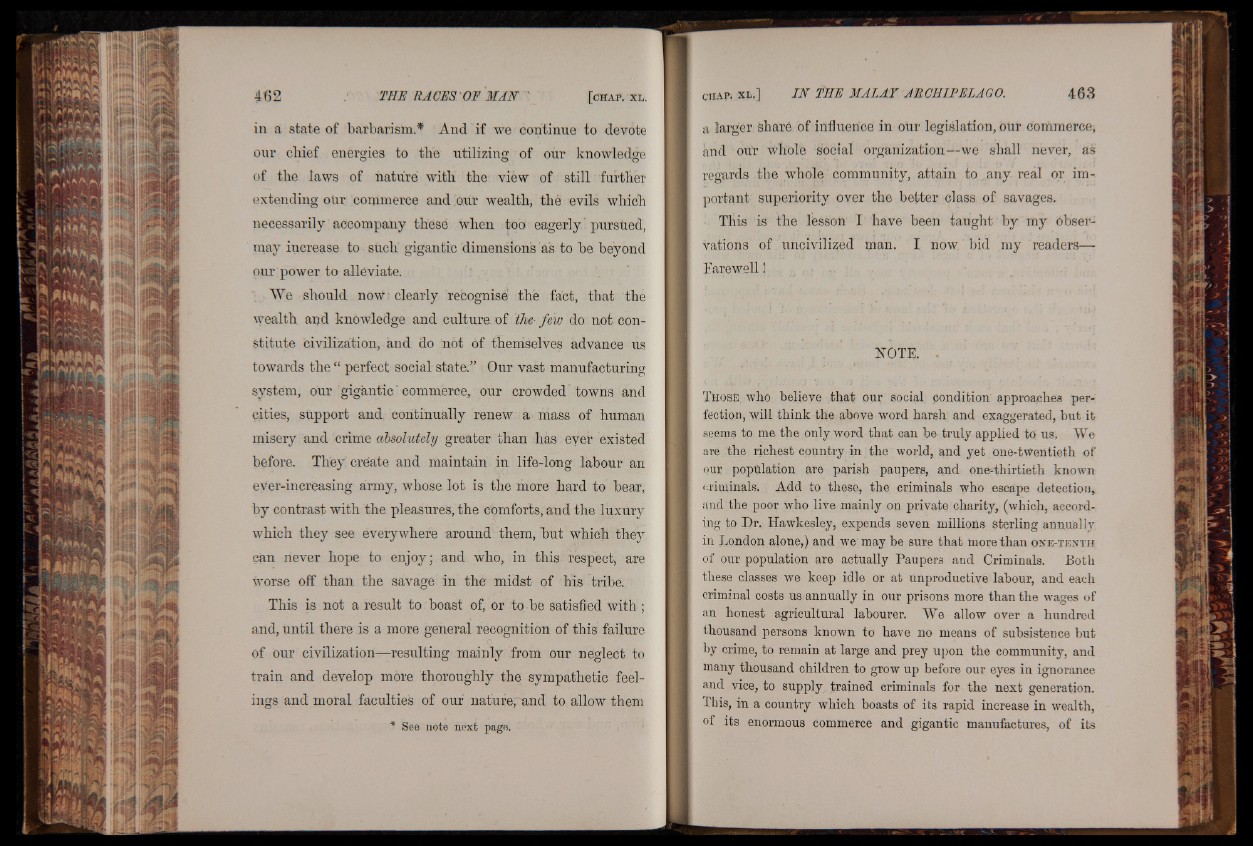
in a state of barbarism.* And if we continue to devote
our chief energies to the utilizing of our knowledge
of the laws of nature with the view of still further
extending olir commerce and our wealth, thè evils which
necessarily accompany these when too eagerlypurshed,
may increase to such gigantic dimension's as to be beyond
pur power to alleviate.
We should now ; clearly refcognisè thè fact, that the
wealth and knowledge and culture, of the- few do not constitute
civilization, and do nòt òf themselves advance us
towards the “ perfect social state.” Our vast manufacturing
system, our gigantic ' commerce, our crowded towns and
cities, support and continually renew a mass of human,
misery and crime absolutely greater than has ever existed
before. They create and maintain in life-long labour an
ever-increasing army, whose lot is the more hard to bear,
by contrast with the pleasures, the comforts, and the luxury
which they see everywhere around them, but which they
can never hope to enjoy; and who, in this inspect, are
worse off than the savage in the midst of his tribe.,
This is not a result to boast of, or to be satisfied with ;
and, until there is a more general recognition of this failure
of our civilization—resulting mainly from our neglect to
train and develop more thoroughly the sympathetic feelings
and moral faculties of our naturepand to allow them
a larger share of influence in our legislation, our commerce,
and out1 whole social organization—we shall never, as
regards the whole community, attain to any real or important
superiority over the better class of savages.
This is the lesson I have been taught by my observations
o f, uncivilized man. I now bid my readers—■
Farewell!
NOTE. .
Those, who believe that our social condition approaches perfection,
will think the above word harsh and exaggerated, but it
seems to me the only word that can be truly applied to us. We
are the richest country in the world, and yet one-tWentieth of
our population are parish paupers, and one-thirtieth known
criminals. [ Add to these, the criminals who escape detection,
and the poor who live mainly on private charity, (which, accordi
n g to Dr. Hawkesley, expends seven millions sterling annually
i n London alone,) and we may be sure that mope than o n e - t e n t h
of our population are actually Paupers and Criminals. Both
these classes we keep idle or at unproductive labour, and each
criminal costs us annually in our prisons more than the wages of
an honest agricultural labourer. We allow over a hundred
thousand persons known to have no means of subsistence but
by crime, to remain at large and prey upon the community, and
many thousand children to grow up before our eyes in ignorance
and vice, to supply trained criminals for the next generation.
This, in a country which boasts of its rapid increase in wealth,
of its enormous commerce and gigantic manufactures, of its